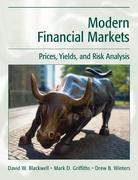Question
Please i need help in question 3 You have an opportunity to buy the Newton Falls Paper mill for $15 million. Currently the mill sells
Please i need help in question 3
You have an opportunity to buy the Newton Falls Paper mill for $15 million. Currently the mill sells standard paper reams and revenues total $6 million per year with fixed costs of $2 million and variable costs of 40% of revenue. If you buy the facility your plan is to produce one or more specialty papers where you believe the margins are higher. You would also like to update and modernize the mill. To do this you will have to purchase two new paper machines for $1.5 million each and a new computer system for another $1 million.
You expect revenues to be:
$9 million year 1
$10 million year 2
$12 million year 3 and ongoing.
You expect your variable costs to equal 20% of revenues and your fixed costs to equal$4.5 million (depreciation expense is not included in this estimate of fixed costs). Assume depreciation on mill is $1 million per year and the machines and computer system is 3 year MACRS property.
- If you paid the $15 million and operated the mill as it is now, meaning you earned the $6 million per year in revenues what would be your NPV? If negative what would you have to pay to get a 0 NPV?
It is assumed that the project is totally equity-financed.
Cost of equity (Ke) = R_{f} + Beta (R_{m} - R_{f})
= 1% + 1.16 (8% - 1%)
= 9.12%
Cash flow (Year 1) = Revenue - FC - VC
= {$6 - $2 - ($6 * 40%)} million
= $1.6 million / year
Depreciation being $1 million, the mill has to operate for 15 years in order to possess a zero salvage worth at the end of this period.
Present value of constant annuity
= $1.6 /9.12% *(1-1/ (1+ 0.0912)15
= $12.8 million
NPV = Present value of constant annuity - Initial outlay
= $12.8 million - $15 million
= ($2.2 million)
NPV = 0, when initial outlay = Present value of constant annuity
NPV will be 0 when initial outlay will be equal to $2.8 million.
- Should you purchase the mill and implement your plan of producing different paper? What is the NPV?
Initial outlay = ($15 + {$1.5 * $2} +$1) million
= $19 million
1st year = ($9 -$4.5 - {9* 0.2}) million
= $4.7 million
2nd year = ($10 -$4.5 - {10* 0.2}) million
= $3.5 million
3rd year = ($12 -$4.5 - {12* 0.2}) million
= $5.1 million
Present value at the end of 2nd year = \small \frac{a}{r}\ast (1- 1\div (1+discount rate)^{^{n}}
= $5.1 /9.12% *(1-1/ (1+ 0.0912)13
= $37.94 million
Note: n is 13 years as the constant annuity begins at the 3rd year and continues up to 15th year.
Present value of constant annuity = $4.7 (1 + 0.0912) + (3.5 +37.94) / (1+0.0912)2
= $39.1 million
NPV = Present value of constant annuity - Initial outlay
= ($39.1 - $19) million
NPV = $20.1 million
I should purchase the mill because the NPV is positive
3- Assume your sales projections are not what you thought and your sales are only $8 million each year going forward and variable costs jump to 25% of revenue while fixed costs remain $4.5 million what is your NPV? What is your breakeven revenue to have at least a 0 NPV? What does this mean?
To complete these questions you will need to compute the projects cost of capital. For # 1 assume 100% equity financed so you will use the cost of equity to compute. To get the cost of equity and cost of debt use International Paper as a proxy for this project. In other words you can use its beta and cost of debt. Assume a risk free rate of 1% and the market rate of 8%. Assume a tax rate of 35%. You can look up International Papers cost of debt and Beta online.
Step by Step Solution
There are 3 Steps involved in it
Step: 1

Get Instant Access to Expert-Tailored Solutions
See step-by-step solutions with expert insights and AI powered tools for academic success
Step: 2

Step: 3

Ace Your Homework with AI
Get the answers you need in no time with our AI-driven, step-by-step assistance
Get Started


